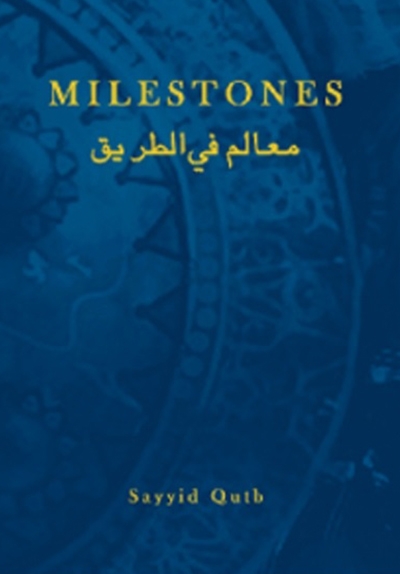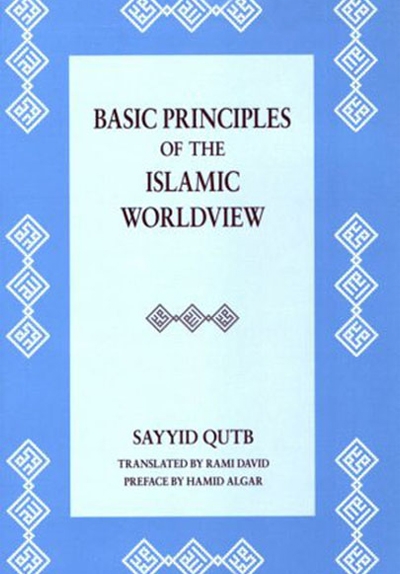



The riots in Iraq, Lebanon and Islamic Iran are interconnected. The hands of imperialists and Zionists and their local minions are all visible if only one opens ones eyes…
Is the West, especially the US waking up to Saudi Arabia's destructive influence in the world? This article reproduced from the New York Times, raises pertinent questions about Saudi role, funding and ideological support of extremism in the Muslim world. The photo shows Saudi-inspired ISIS takfiri terrorists executing prisoners.
1Muslim scholars have written extensively on the political and social theories of Islam but there isn’t enough material on the principles of economics. The few attempts at Shariah-compliant activities are mere window dressing and do not meet the requirements of Islamic law.
Sayyid Qutb’s martyrdom anniversary falls on August 29 but how many Muslims—even committed ones—are aware of this? Should this great scholar of Islam not be remembered for his immense contributions?
1The Muslims have reposed high expectations in the people and leadership of Egypt. Will the new leadership follow in the footsteps of Hassan al-Banna and Syed Qutb or end up compromising with imperialism and Zionism?
It is essential for mankind to have new leadership. The leadership of mankind by Western men is now on the decline, not because Western culture has become poor materially or because its economic and military power has become weak. The period of the Western system has come to an end primarily because it is deprived of those life-giving values, which enabled it to be the leader of mankind. It is necessary for the new leadership to preserve and develop the material fruits of the creative genius of Europe, and also to provide mankind with such high ideals and values as have so far remained undiscovered by mankind, and which will also acquaint humanity with a way of life which is...harmonious with human nature, which is positive and constructive, and which is practicable.
1Sayyid Qutb, executed in 1966 by the Egyptian government but still broadly influential today, was deeply convinced that Islam provides an ideal framework for all of human existence -- individual and social, political and economic, intellectual and spiritual. He believed equally that in all these various aspects the religion had been obscured or distorted by an influx of alien influences. In this, one of this most widely read works, he addresses himself to the task of retrieving what he regards as the authentic mode of thought that is distinctive of Islam or even unique to it. This he does through the concise presentation of seven characteristics of Islamic thought, abundantly illustrated with citation of relevant Qur'anic verses. The translation has been edited and introduction by Hamid Algar, who places Sayyid Qutb and his work in his historical and contemporary context, and evaluates the ideas contained in the book.
1أصل هذا الكتيب … رسالة بعث بها سيد رحمه الله إلى أخته أمينة قطب . وكانت مجلة الفكر التونسية قد نشرته في عددها السادس من السنة الرابعة ، آذار (( مارس )) 1959م بعنوان ( أضواء من بعيد ) ولما كثر الطلب على هذه الرسالة طلبنا الإذن من الأستاذ محمد قطب حفظه الله لإعادة نشرها فأذن لنا بذلك جزاه الله خيرا .
1"Social Justice in Islam" is perhaps the best known work of Sayyib Qutb, a leading figure in the Muslim Brethen of Egypt who was executed by the regime of 'Abd al-Nasr in 1966. Despite the years that have passed since Sayyid Qutb's death, the imprint of his thought on the contemporary Islamic movements of the Arab world remains profound. The Arabic original of "Social Justice in Islam" was first published in 1949, but this book in particular retains its relevance in many respects: the persistence of gross socio-economic inequality in most Muslim societies; the need for viewing Islam as a totality, imperatively demanding comprehensive implementation; and the depiction of the West as a neo-Crusading force.
1It is perhaps indicative of the present state of the Ummah that, outside his native Egypt and a small circle of Islamic activists, few Muslims are aware that August 29 marked the thirty-third anniversary of the martyrdom of Sayyid Qutb.
This 'letter' was sent by Martyr Sayyid Qutb, the Egyptian writer of renown, to Ayatollah Kashani of Iran as a confirmation of the emerging unity of the Muslim Ummah. It was published by the journal al-Risalah (No. 951, Dhu al-Hijjah 24, 1370/September 25, 1951) nearly 38 years ago from Cairo.



